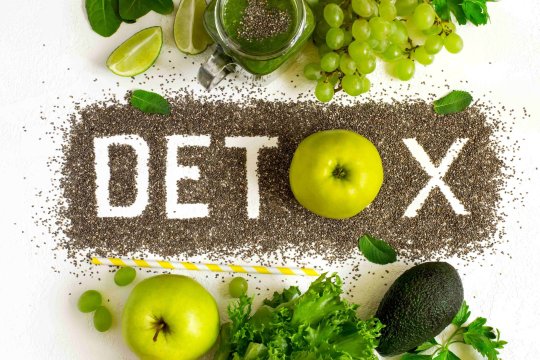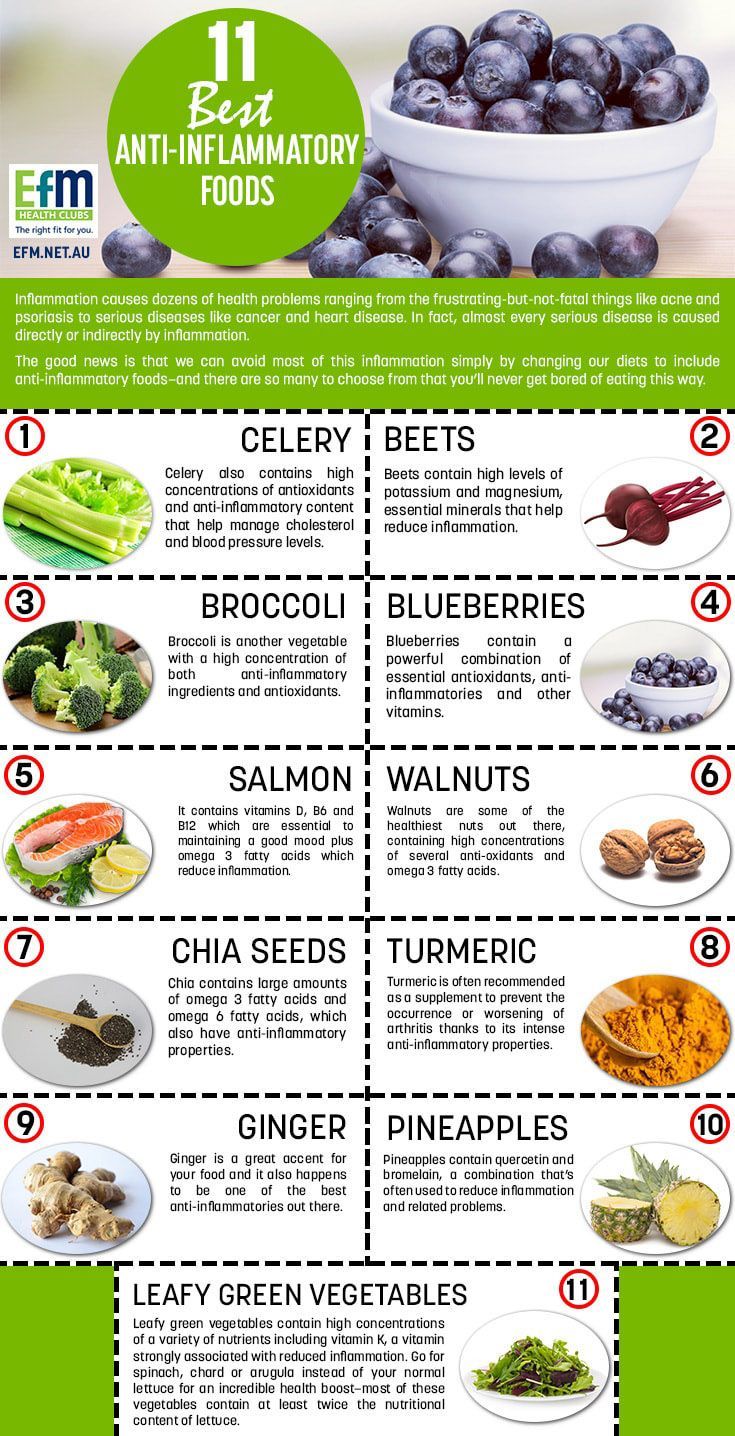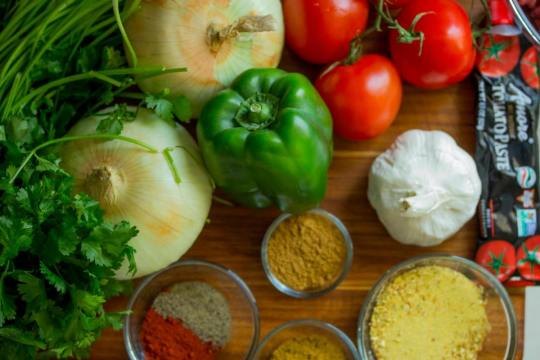#the anti-inflammatory diet
Text
the Anti-inflammatory diet
Embrace the healing power of food with an anti-inflammatory diet. Nourish your body, soothe inflammation, and unlock the path to vibrant health from within. 🥦🌿
#anti-inflammatory diet#anti-inflammatory foods#anti-inflammatory#anti-inflammatory recipes#top anti-inflammatory foods#the anti-inflammatory diet#21 day anti-inflammatory diet#anti-inflammatory diet recipes#inti-inflamatory diet#anti-inflammatory smoothie#anti-inflammatory pyramid#anti-inflammatory results#anti-inflammatory meal prep#anti-inflammatory meal plan#anti-inflammatory supplements#the#1 best anti-inflammatory foods
1 note
·
View note
Text
‼️ content warning for talking about (necessary, healthy) food restrictions ‼️
Please don’t be rude about somebody’s dietary restrictions.
Sometimes people don’t even notice it in the little comments about how gross vegan food is, how bad for you dairy-free milks are, how everything gluten-free tastes like cardboard…people don’t choose their food intolerances!!!!
I have to use a lot of substitutes for MEDICAL REASONS, and I’ve had people tell me to my face how gross that is. Vegan cheese tastes like glue. Oh, you have to try a gluten free diet? That’s so trendy now, but really you don’t have to. The food is so bland.
I do have to, actually. It’s discouraging to hear how inferior your food is when there’s no other option!!!!! Please try to be considerate of people’s non-negotiable needs.
Also don’t be mean to people who do choose their own dietary specifications, that should go without saying. Be considerate and respectful of what people have to eat!!!
With love, if nobody is practicing unsafe or dangerous eating habits, mind your business ❤️
#tw for talking about food#tw for talking about necessary dietary restrictions#celiac#gluten free#dairy free#inflammation#anti inflammatory diet#chronic illness#psa#reminder#dietary restrictions#food#autoimmune#autoimmune disease#arthritis#chronic pain#IBS#crohn's disease#acid reflux#gerd
72 notes
·
View notes
Text
So, I've switched to this thing called the anti-inflammatory diet or the mediterranean diet. The hope is that I'll be less nausea with it and maybe get some other good effects cause it's called anti-inflammatory for a reason. But does anyone have any good recipes for it?
Specifically bready things and sweet things. I usually have a lot of those two, but it's not really recommended so alternative or approved versions would be appreciated!
#chronic illness#postural orthostatic tachycardia syndrome#disabled#ehlers danlos syndrome#chronic pain#hypermobile ehlers danlos#pots syndrome#chronically ill#disability#spoonie#chronic nausea#healthy eating#mediterranean diet#food recipes#anti inflammatory diet
20 notes
·
View notes
Text
Kind of in a mental health death spiral today but I had a cute breakfast

Home made whole wheat rye bread with the last of my blackberry and Thai chili jam from Gray Fox Farm and a cup of Locked Tomb themed tea blend II. For the Shield from my favorite tea shop, Friday Afternoon
#Had a Dr appointment yesterday and she suggested I look into an anti-inflammatory diet#And looking it up online triggered some really upsetting ED thought spirals I haven't been down in years
7 notes
·
View notes
Text



8.28.24
First half of this week…
🌟Narrowing down staple foods to meet my health goals
🌟Tofu bokchoy shiitake mushroom stew, quinoa, and broccoli
🌟Spring salad with mustard greens, tomatoes, and variety of seeds
Giving my body nourishing foods this week, focusing on hormonal balance, decreasing bloating/inflammation, and prebiotics.
#glow up#glow up diaries#glow up journey#glow up with me#late bloomer#health and wellness#dream girl journey#becoming my own dream girl#self care#self love#self improvement#nourishment#transformation#looksmaxxing#gut health#hormonal balance#diet assessment#salad#meal prep#nutrition#anti inflammatory#prebiotics#health is wealth
5 notes
·
View notes
Text
My sourdough came out trash, dense and rubbery. BUT IT HAD SOME BUBBLES. it was TASTY too. Sad I used WAX paper instead of parchment paper. But it will be ok next time. I'm getting there
5 notes
·
View notes
Text

#antiinflammatory#inflammation#health#mental health#edible oil#vegetable oil#oil#oils#cooking#diet#food#anti inflammatory#depression
3 notes
·
View notes
Text
3 days off of running and a weekend of ignoring my diet resulted in a pretty sorry 2 mile out and back that was plagued with side cramps i could not run through and thus had to walk for a few minutes at the halfway mark but hey at least i went for a run!! on an OFFICE DAY no less!!
#i basically ran the first 3/4 mile and the last 3/4 mile and walked the 1/4 in between :(#i follow a fairly strict anti inflammatory diet to control my endometriosis flare ups and i said fuck ALL of that this weekend#so i reap what i sow i guess in that regard#gonna try for 3.5 miles tomorrow and then 2 on thursday and friday is the office 5k!!#daisyruns.txt
2 notes
·
View notes
Text

Salmon steak with fresh cucumber and tomato salad, with a side of Greek yogurt
#arthritis#antiinflammatory#anti-inflammatory#anti-inflammatory diet#antiinflammatorydiet#health & fitness#nutrition#salmon#salad recipe#pescetarian
2 notes
·
View notes
Text
Nourishing Wellness: Exploring the Principles and Benefits of a Detoxifying Diet
Introduction: In a world inundated with processed foods, environmental toxins, and stressors, the concept of detoxifying diets has gained popularity as a means to cleanse the body, rejuvenate health, and restore vitality. While the term "detox" often conjures images of extreme juice cleanses or fasting regimens, the essence of a detoxifying diet lies in nourishing the body with nutrient-dense foods while minimizing exposure to toxins. In this article, we delve into the principles and benefits of a detoxifying diet, offering insights into how it can support overall well-being and promote optimal health.

Understanding Detoxification: Detoxification is a natural process by which the body eliminates toxins and metabolic waste products through organs such as the liver, kidneys, lungs, skin, and digestive tract. These organs work synergistically to neutralize harmful substances and facilitate their excretion from the body. However, in modern times, the body's detoxification pathways can become overwhelmed due to factors such as poor dietary choices, environmental pollution, stress, and sedentary lifestyles. A detoxifying diet aims to support the body's innate detox mechanisms by providing essential nutrients, antioxidants, and phytochemicals while reducing the burden of toxins.
Principles of a Detoxifying Diet:
Emphasis on Whole, Plant-Based Foods:
A detoxifying diet prioritizes whole, unprocessed foods such as fruits, vegetables, legumes, whole grains, nuts, and seeds. These foods are rich in vitamins, minerals, fiber, and antioxidants, which support detoxification pathways and promote overall health.
Incorporating a variety of colorful plant foods ensures a diverse array of nutrients and phytochemicals, which have been shown to possess detoxifying properties and protect against chronic diseases.
Hydration with Water and Herbal Teas:
Adequate hydration is essential for optimal detoxification, as water supports the flushing out of toxins through urine and sweat.
Drinking plenty of water throughout the day helps maintain hydration levels and supports kidney function. Herbal teas such as green tea, dandelion tea, and ginger tea can also aid in detoxification by promoting digestion and liver health.
Minimization of Processed Foods and Toxins:
A detoxifying diet limits the consumption of processed foods, refined sugars, artificial additives, and unhealthy fats, which can contribute to toxin buildup in the body.
Choosing organic produce whenever possible helps reduce exposure to pesticides, herbicides, and other environmental toxins commonly found in conventionally grown crops.
Supportive Nutrients and Supplements:
Certain nutrients and supplements can enhance the body's detoxification processes. For example, foods rich in sulfur-containing compounds such as garlic, onions, and cruciferous vegetables support liver detoxification pathways.
Incorporating herbs and spices such as turmeric, cilantro, and milk thistle can also aid in detoxification and promote liver health.
Benefits of a Detoxifying Diet:
Enhanced Energy and Vitality:
By reducing the burden of toxins on the body and supporting optimal nutrient intake, a detoxifying diet can increase energy levels and promote overall vitality.
Many individuals report feeling lighter, more energized, and mentally clear after adopting a detoxifying diet, as the body's natural detoxification pathways are supported.
Improved Digestion and Gut Health:
Whole, plant-based foods are rich in fiber, which supports digestive health and promotes regular bowel movements.
By reducing intake of processed foods and potential allergens, a detoxifying diet can alleviate digestive discomfort and promote a healthy gut microbiome.
Enhanced Immune Function:
A well-nourished body is better equipped to defend against pathogens and foreign invaders. By providing essential nutrients and antioxidants, a detoxifying diet strengthens the immune system and supports overall immune function.
Phytonutrients found in plant foods have been shown to possess immune-boosting properties, helping the body fend off infections and maintain optimal health.
Weight Management and Hormonal Balance:
A detoxifying diet that emphasizes whole, nutrient-dense foods can support weight management goals by promoting satiety, reducing cravings, and stabilizing blood sugar levels.
By reducing exposure to endocrine-disrupting chemicals found in processed foods and environmental pollutants, a detoxifying diet can support hormonal balance and overall metabolic health.
Conclusion: In conclusion, a detoxifying diet offers a holistic approach to supporting the body's natural detoxification processes and promoting overall health and vitality. By prioritizing whole, plant-based foods, staying hydrated, minimizing exposure to toxins, and incorporating supportive nutrients, individuals can nourish their bodies and optimize their well-being. While there is no one-size-fits-all approach to detoxification, adopting a balanced and sustainable dietary pattern can yield numerous benefits for health and wellness. Let us embrace the principles of a detoxifying diet as a foundation for nourishing our bodies, supporting our health goals, and enhancing our quality of life.
Website: https://cruelty.farm/
https://sites.google.com/view/chronicdiseasereversal/home
https://seogoogle99.blogspot.com/2024/04/vegan-protein-sources.html
2 notes
·
View notes
Text
do you even realize how bummed out I am that I went through a hell of a lot of effort (and money) to get my favorite Finnish chocolate here in the US and as soon as I did, I had to go on a gluten-free, sugar-free, dairy-free, peanut-free medically necessary diet
and now the 30 chocolate bars I have expire in a month and I haven’t had a single one
#im screaming on the inside#it cost me no small amount to get these shipped here#i've sat staring at them for months#is chocolate alright after the best by date????#you dont even wanna know how much money i've spent the last six months having to deal with my UC#this anti-inflammatory diet costs SO FUCKING MUCH and i've had to throw out so much of my regular food
9 notes
·
View notes
Text
i hate diets even if its for the actual benefits of your health TOO

#.1 am#''anti inflammatory diet'' well im about to kill myself so how about that slash jay#is it worth risking a flareup that will give me an open wound that will take another 6 months - 1 year to heal yes or no#sui mention#scopo
3 notes
·
View notes
Text
Week 1 Game Plan.

This week I'm focusing on better planning my lunches for work and cutting out a few major offenders in my diet.
My current home situation doesn't really provide me with much control over what's for dinner. I know I can always make my own on the side but I want to get there gradually and not overwhelm myself. So instead I'm babystepping into this, and I may not end up getting fully AIP compliant but I'm going to try my best to give myself the biggest chance of healing.
Here's the goals:
1. WATER 💧 : Drink at least 2 bottles of water each day this week. I'm not counting sparkling water in this but it is allowed for now while I'm cutting out soda.
2. Pack a lunch every day for work, and compliant snacks. Only 4 days this week. Today is Monday so I'll be making myself a ton of Chicken Salad. Snacks I haven't decided on but I very well may just pack extra chicken and snack on that.
3. Avoid the list below as much as possible. If I mess up I am not allowed to use "I'll start again tomorrow" as an excuse to go wild for the rest of the day.
4. Take all of my work breaks and take a walk during them.
Here's what I'm avoiding (for now):
1. Dairy 🐄
2. Coffee ☕️
3. Bread 🍞
4. Spicy Stuff 😭 This is going to be the hardest, but it's proven to be a big contributor to my aches and pains.
5. Soda/Energy Drinks 🥤
6. Alcohol. 🍷 This is probably going to be the easiest to start off, but hard to maintain.
7. Candy 🍬 I've become a major candy snacker at work recently and I really need to plan ahead for something to replace these impulse grabs.
It feels like sooo much listed out, but I’m actually feeling pretty confident about it.
#saddie to baddie#spoonie#self improvement#aip diet#autoimmune protocol#autoimmine disease#multiple sclerosis#anti inflammatory#paleo#gut health#i need extra spoons#self care#game plan#pain pain go away#meal planning
9 notes
·
View notes
Text
Can inflammation cause depression?
There’s evidence to suggest that inflammation can contribute to the development of depression in many people, particularly among individuals with preexisting inflammatory conditions or chronic illnesses.
For instance, research suggests that the link between inflammation and depression is commonly seen in conditions like autoimmune diseases (e.g., multiple sclerosis) and infections (e.g., sepsis) where the immune system plays a significant role.
How does inflammation affect your mental health?
When your immune system is activated, it affects not only the body but also the central nervous system, which includes the brain. Chronic inflammation is linked to changes in the brain’s chemistry and structure, which can increase the risk of depression.
Inflammation can impact mental health in several ways:
Neurotransmitter imbalance: ResearchTrusted Source suggests that inflammation may disrupt brain chemicals (neurotransmitters) like serotonin and dopamine, leading to mood imbalances.
Hormonal disruption: Inflammation can affect stress and sex hormone levels (e.g., cortisol, estrogen), impacting mood and cognition.
Neuroinflammation: EvidenceTrusted Source suggests that inflammation within the brain itself can cause cognitive and mood problems.
Reduced neuroplasticity: Chronic inflammation may hinder the brain’s ability to adapt and learn.
Oxidative stress: Inflammation may increase oxidative stress, damaging brain cells.
In many adults, depression and inflammation appear to be separate issues. One studyTrusted Source found that clinical depression in older individuals isn’t typically linked to increased inflammation unless they have preexisting inflammatory conditions like arthritis.
How do you know if your depression is caused by inflammation?
Determining if your depression is caused by inflammation typically involves specialized medical tests and assessments. This may involve blood tests to measure inflammatory markers or discussions with your doctor about your medical history and symptoms.
However, here are some signs that suggest inflammation may be contributing to your depression:
You have other inflammatory conditions (e.g., autoimmune disorders, chronic infections, or inflammatory bowel disease).
Your depression had a sudden onset (especially in response to an infection or injury).
Your depression doesn’t respond to antidepressants.
You have physical symptoms (e.g., fatigue, joint pain, or fever)
You have high stress levels (chronic stress can trigger inflammation).
You have a family history of both depression and inflammatory conditions.
You have elevated markers of inflammation, like CRP or cytokines, in specialized blood tests.
Treatment options for inflammation-related depression
Treatment options for inflammation-related depression typically aim to target both the underlying inflammation and the depressive symptoms. Here are some common approaches:
Anti-inflammatory medications: Some evidenceTrusted Source suggests that nonsteroidal anti-inflammatory drugs (NSAIDs) or anti-inflammatory agents like corticosteroids may be prescribed to reduce inflammation.
Healthy diet: A comprehensive reviewTrusted Source of 41 studies revealed that maintaining a consistently healthy diet, especially one in line with the traditional Mediterranean diet, or simply avoiding diets that promote inflammation, may protect against depression.
Psychotherapy: Cognitive-behavioral therapy (CBT) and mindfulness-based therapies may help manage depression symptoms.
Medications: Some evidenceTrusted Source suggests that certain antidepressants, like selective serotonin reuptake inhibitors (SSRIs) and serotonin-norepinephrine reuptake inhibitors (SNRIs), can reduce inflammation in the brain, which may contribute to their effectiveness.
Light therapy: A 2017 study found that combining bright light therapy with antidepressants for nonseasonal depression could be effective. Participants also showed significant changes in immune-related lymphocyte counts.
Omega-3 fatty acids: Omega-3 supplements, found in fish oil, have anti-inflammatory properties and may help with depression symptoms.
Mind-body practices: Practices like yoga and meditation can help manage stress and potentially reduce inflammation.
Probiotics: Some research suggests that probiotics may have a positive impact on gut health and inflammation, which could indirectly affect mood.
Anti-inflammatory foods:
Here are some of the most anti-inflammatory foods on the planet, backed by research:
Fatty Fish: Fatty fish like salmon, tuna, mackerel, and sardines are rich in omega-3 fatty acids, which have potent anti-inflammatory effects.
Turmeric: Curcumin, a compound found in turmeric, has been shown to reduce inflammation and oxidative stress in the body.
Ginger: Ginger has anti-inflammatory compounds like gingerol and shogaol, which have been shown to reduce inflammation and pain.
Berries: Berries such as blueberries, raspberries, strawberries, and pomegranates are rich in antioxidants and polyphenols, which have anti-inflammatory effects.
Green Tea: Green tea contains epigallocatechin gallate (EGCG), which has been shown to reduce inflammation and improve symptoms of arthritis.
Dark Chocolate: Dark chocolate contains flavonoids, which have anti-inflammatory and antioxidant properties.
Olive Oil: Olive oil is rich in oleocanthal, a compound that has been shown to reduce inflammation and oxidative stress.
Cruciferous Vegetables: Vegetables like broccoli, cauliflower, and kale contain sulforaphane, which has anti-inflammatory and antioxidant properties.
Fatty Nuts and Seeds: Nuts and seeds like walnuts, chia seeds, and flaxseeds are rich in omega-3 fatty acids and antioxidants.
Leafy Greens: Leafy greens like spinach, kale, and collard greens are rich in antioxidants and polyphenols, which have anti-inflammatory effects.
Garlic: Garlic contains compounds like allicin, which have been shown to reduce inflammation and improve cardiovascular health.
Apples: Apples contain quercetin, a flavonoid that has anti-inflammatory properties.
Pineapple: Pineapple contains an enzyme called bromelain, which has anti-inflammatory properties.
Sweet Potatoes: Sweet potatoes are rich in beta-carotene, an antioxidant that has anti-inflammatory effects.
Mushrooms: Certain mushrooms like reishi, chaga, and cordyceps have been shown to have anti-inflammatory properties.

+ anti-inflammatory oils >here<
+ If you are into extracts or diet supplements, you can find products similar to >this<.
#depression#inflammation#mental health#health#mental illness#chronic illness#inspiration#consciousness#self care#self help#diet#food#food supplements#anti inflammatory#anxiety#ptsd#nervous system#immune system#autoimmune disease#autoimmune disorder
3 notes
·
View notes
Text
Santa Clarita Diet: A Culinary Wond,erland Unveiled
Santa Clarita, a city with a rich tapestry of culture and culinary delights, has emerged as a hidden gem for food enthusiasts. From the influence of its Spanish heritage to innovative culinary experiments, the Santa Clarita Diet is a blend of tradition and modernity that tantalizes the taste buds and nourishes the soul.
Origins of Santa Clarita Diet
The roots of Santa Clarita’s culinary…

View On WordPress
#alkaline diet#anti inflammatory diet#atkins diet#brat diet#carnivore diet#dash diet#diabetes diet#diabetic diet#diverticulitis diet#fodmap diet#golo diet#keto diet#keto diet plan#low carb diet#low cholesterol diet#low fodmap diet#mediterranean diet#military diet#optavia diet#paleo diet#plant based diet#Santa Clarita Diet#what is keto diet
1 note
·
View note
Text

Made chicken and wild rice soup that turned out almost perfect
#birdy's food experiments#it doesn't look super pretty but the taste is really good#and while it's not super low carb it is one of the recommended things for the anti inflammatory diet I'm also supposed to be on#plus it's cold and i like soups
3 notes
·
View notes